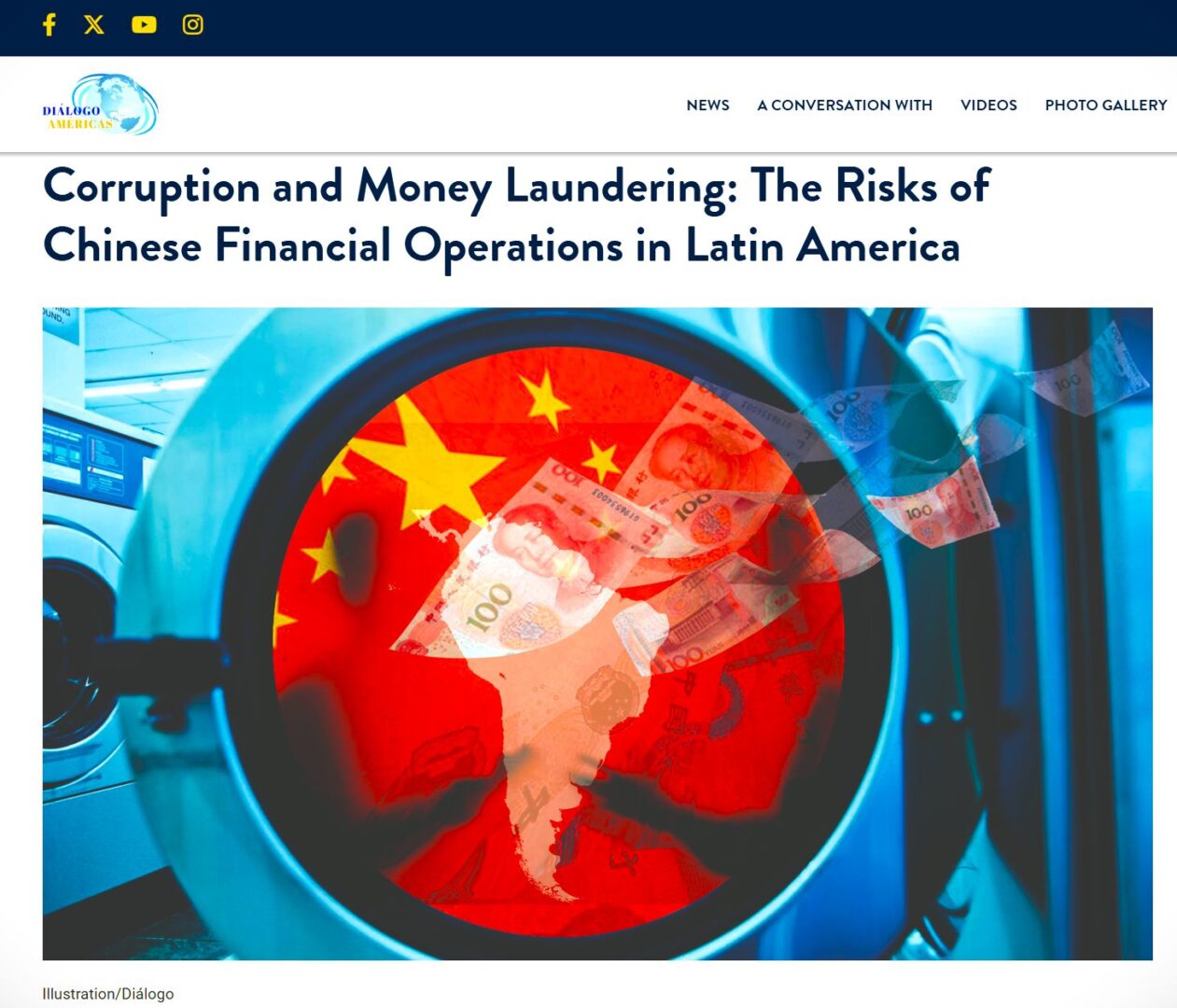Corruption and Money Laundering: The Risks of Chinese Financial Operations in Latin America
ICAIE VP and Senior Advisor John Cassara is quoted in a newly released article by Maria Zuppello, Dialogo Americas: Corruption and Money Laundering: The Risks of Chinese Financial Operations in Latin America: In a recent documentary, Dirty Money, Cartels, and Underground Banks, British daily Financial Times highlighted the exponential growth of Chinese money laundering operations worldwide, including in Latin America.
Despite commission rates above average, according to experts, the financial services that Chinese networks offer are increasingly attracting criminal organizations in the region that need to launder the proceeds of their illicit activities quickly and globally. This is a genuine Chinese underground banking system that allows so-called mirror transfers, similar to the traditional Middle Eastern Hawala. In other words, the money moves from one border to another without physically moving, thanks to the ties of trust and cooperation among the various intermediaries in the worldwide network, who advance the money without the need to physically receive it.
“Chinese migrant communities are governed by the concept of guanxi, which regulates relationships and networks and is based on trust. This is one of the reasons why it is very difficult for outsiders, including undercover law enforcement agencies, to penetrate and block these networks,” John Cassara, and ICAIE Senior Advisor and a former CIA officer and former U.S. Treasury Department special agent, told Diálogo. In addition, Western police generally do not understand China’s culture, language, financial models, and way of doing business. “Latin American criminal organizations know this and it’s one of the reasons they work with the Chinese,” Cassara says.
“Among the various money laundering methods used by the Chinese is that of mixing illicit proceeds with those from legitimate activities and introducing them into the financial system. In this case, Chinese organized crime thrives on the large community of small Chinese businesses that accept ‘tainted money’ in exchange for percentages of its value, percentages that Chinese organized crime in turn charges to Latin American drug traffickers. It’s a win-win business,” Cassara further underscores.
“Corruption is ingrained in communist China. Unfortunately, through the Belt and Road Initiative (BRI) and other Chinese initiatives abroad, political, military, espionage, diplomatic, commercial, the Chinese Communist Party (CCP) also exports corruption which is the great facilitator of money laundering. Chinese corruption greases many of the BRI deals and, even outside the BRI, Chinese corruption is so notorious that the World Bank has banned China from bidding on some international development projects,” says Cassara.

